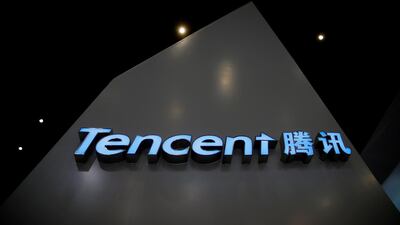The $220 billion rout in shares of Tencent has entered uncharted territory.
Not only has the Chinese internet giant lost more market value than any other company worldwide this year, its 38 per cent drop from a closing high in January is now the deepest since Tencent’s 2004 listing in Hong Kong. The stock has been mired in a downtrend for a record 259 calendar days and on Tuesday matched its longest streak of consecutive losses after falling for an eighth session. It has never fared worse relative to global technology shares.
It’s a dramatic reversal for a stock that returned more than 67,000 per cent from its initial public offering through January, by far the best performance among large-cap companies globally during that period. While Tencent’s hugely popular online games, WeChat messaging service and budding finance business made it a favourite of both institutional and individual investors, sentiment has soured after the company faced an onslaught of bad news this year.
The first blow came almost nine months ago, when global concerns over frothy tech valuations dragged down Tencent and many of its peers. In March, losses accelerated after Tencent warned of weaker margins and one of the company’s oldest shareholders said it was unloading a nearly $11bn stake.
_____________
Read more:
Tencent undertakes restructuring for first time in 6 years
China's new gaming curbs wipe $20bn off Tencent market value
_____________
That was followed by a wave of selling from Chinese investors, Tencent’s first profit drop in at least a decade, and a regulatory bottleneck on game approvals in China. The stock, which commands the biggest weighting in MSCI’s global emerging markets index, has taken another beating in recent days amid worries about slowing Chinese growth and a weaker yuan. It fell 1.7 per cent to HK$293.80 on Tuesday, its lowest close since July 2017.
One group that’s sticking with Tencent despite this year’s travails: sell-side analysts. All but one of the 49 forecasters tracked by Bloomberg has the equivalent of a buy rating on the stock, with the consensus 12-month price target implying a 52 per cent rebound.
But given that those same analysts failed to predict the current sell-off, investors may want to think twice about buying now. Even after its slump, Tencent is trading at 25 times projected earnings over the next 12 months, according to data compiled by Bloomberg. That compares with multiples closer to 20 when the shares bottomed after major declines in 2011 and 2008.

